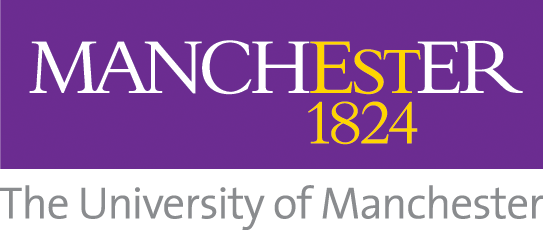Vacancy 7- University of Manchester

Job title: Marie Skłodowska-Curie Early-Stage Researcher (ESR2) PhD studentship
Salary: £34,773-£47,823 (Grade H9-H12, dependent on family circumstances)
Application deadline: 10/12/2020 23:00 - Europe/London
Start/duration: Tenable 1st April 2021 or soon thereafter, for a period of 36 months
Probation period: 9 months
Based at: Department of Chemistry
Responsible to: Professor Daniele Leonori
Applications are invited for a 36-month position as a Marie Skłodowska-Curie Early-Stage Researcher (ESR) in the area of photocatalysis and synthetic organic chemistry. The successful applicants will join the Horizon 2020 Marie Skłodowska-Curie Innovative Training Network (ITN) PhotoReAct, working under the supervision of Professor Daniele Leonori on a project to develop novel photocatalytic methodologies for small-molecule synthesis.
The project is funded by the MARIE SKŁODOWSKA CURIE Innovative Training Network, Agreement no. 956324.
‘PhotoReAct’, within the Horizon 2020 Programme of the European Commission. The project aims to structure a training network for doctoral students in the field of Photocatalysis over a period of 48 months. PhotoReAct is a consortium of 14 partners composed of high-profile universities, research institutions and companies located in European countries, and will train 15 Early Stage Researchers. It is coordinated by Profs Timothy Noel (University of Amsterdam, Netherlands) and Eli Zysman-Colman (University of St. Andrews, UK). All ESRs will perform three secondments, of which at least one is intersectoral and carried out with an industrial partner and a second is international. Consequently, the ESRs will have improved career prospects and a higher employability.
Project overview
This project will be within the area of photoredox catalysis with a particular emphasis towards the development of novel methodologies for C–N bond assembly. The candidate will be exposed to an interdisciplinary project requiring the use of advanced synthetic, electrochemical and photophysical techniques. The main aim of the project will be to develop fundamentally novel transformations that can be applied to the preparation and the late-stage functionalization of bio-active materials.
The ESR2 position is offered in conjunction with a PhD studentship at the University of Manchester, subject to the applicant satisfying the admissions requirements of the university. The successful applicants will be required to enroll to undertake a PhD degree under the supervision of Professor Daniele Leonori.
Essential criteria include: minimum 2.1 UK equivalent undergraduate degree and Masters degree in Chemistry. At the time of recruitment, researchers must not have resided or carried out their main activity (work, studies, etc.) in the United Kingdom for more than 12 months in the 3 years immediately prior to the appointment date.
The selection procedure includes two interview rounds and a reference check. The first interview will be done by video calls and the second in person and include a presentation of your master thesis, an essay about the future of photoredox catalysis (1 hour preparation time, no Google searches can be carried out) and subsequent presentation in front of the supervisors. Because of COVID-19 it may be that the last round has to be done by video call.
Informal inquiries may be made to Professor Daniele Leonori.
The Department is committed to Athena SWAN principles to promote women in science; the Department’s website documenting activity in this area can be found at: https://www.chemistry.manchester.ac.uk/connect/social-responsibility/
The University of Manchester values a diverse workforce and welcomes applications from all sections of the community.
Eligibility criteria
Eligibility for an Early Stage Researcher under the European Commission H2020-MSCA-ITN-2019 Programme:
- Early-Stage Researchers (ESRs) must have less than 4 years research experience at the signature of the contract (measured from the time the Master’s degree has been obtained), and have not been awarded a doctoral degree.
- Mobility Rule: researchers must not have resided or carried out their main activity (work, studies, etc.) in the country of the recruiting beneficiary (United Kingdom) for more than 12 months in the 3 years immediately before the recruitment date. Compulsory national service, short stays such as holidays, and time spent as part of a procedure for obtaining refugee status under the Geneva Convention1 are not taken into account.
Selection process
The selection procedure includes two interview rounds and a reference check. The first interview will be done by video calls and the second in person and include a presentation of your master thesis, an essay about the future of photoredox catalysis (1 hour preparation time, no Google searches can be carried out) and subsequent presentation in front of the supervisors. Because of COVID-19 it may be that the last round has to be done by video call.
Requirements
Skills/Qualifications
- First class or 2.1 UK equivalent undergraduate degree and Master’s degree in Chemistry covering the areas of synthetic organic chemistry, photochemistry and catalysis.
- Applicants must not hold a PhD degree and must have less than 4 years research experience.
- Have excellent oral and written communication skills.
- Ability to work independently and as part of a team.
- Not have resided or carried out main activity in the UK for more than 12 months in the last 3 years immediately prior to the reference recruitment date.
- Excellent knowledge of the English language (spoken and written) that meets the requirements of the Department of Chemistry’s English Language criteria for postgraduate courses. A minimum IELTS score of 6.5 overall, or TOEFL (IBT) 90 overall; and each component of the tests should meet the minimum requirement of IELTS 5.5 or TOEFL (IBT) 22.
Work location(s)
The University of Manchester
United Kingdom
Manchester
M13 9PL
Manchester
Interdisciplinary Biocentre131
Princess StreetM1 7DN





